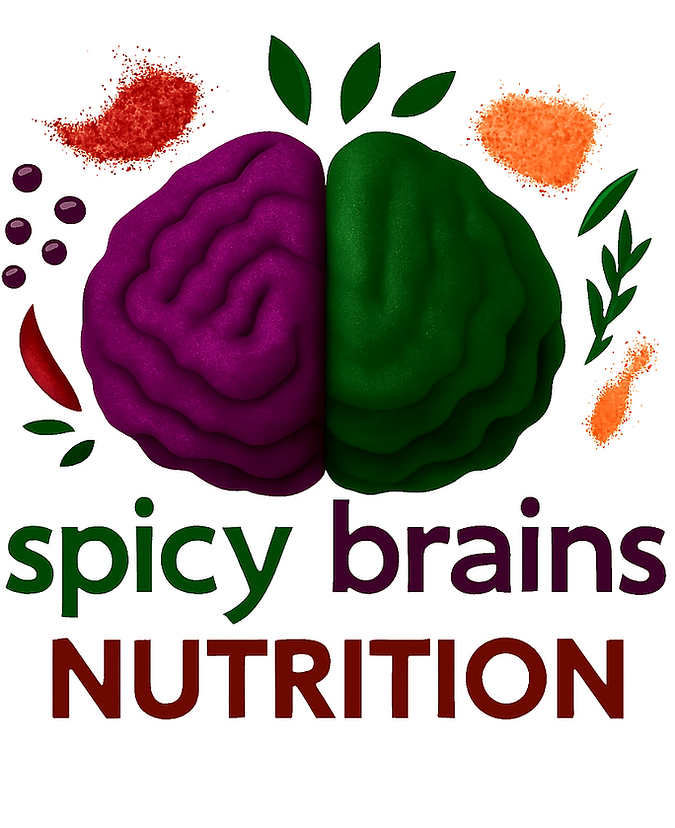Empowering Your Brain by Nurturing Gut Health for Improved Mood and Focus
- Nina Waddington
- Aug 1
- 3 min read
Ever had a “gut feeling” that something was off? This intuitive sense, often referred to as a gut feeling, is not just a whimsical notion; it is grounded in science. It turns out, your gut and brain are in constant communication, forming a complex network known as the gut-brain axis. This intricate connection plays a significant role in regulating various bodily functions and emotional responses. For neurodivergent individuals, such as those with ADHD, autism, or anxiety disorders, this connection can have a particularly powerful impact on mood, focus, and overall well-being.
• What is the gut-brain axis?
The gut-brain axis is a bidirectional communication system linking the gastrointestinal tract and the central nervous system. This connection involves various pathways, including the vagus nerve, the immune system, and the enteric nervous system, which is often referred to as the second brain. Through this axis, the gut microbiota can influence brain function and behaviour, demonstrating how closely our physical health and mental health are intertwined.
• How gut health impacts ADHD, autism, and anxiety:
Research indicates that individuals with neurodivergent conditions such as ADHD, autism, and anxiety often experience distinct gut health issues. For instance, individuals with ADHD may have an altered gut microbiome, which can exacerbate symptoms like inattention and hyperactivity. Similarly, those on the autism spectrum often report gastrointestinal problems, which can contribute to behavioural challenges. Anxiety disorders are also linked to gut health, as imbalances in gut bacteria can lead to increased feelings of stress and anxiety. Understanding this relationship is crucial for developing holistic treatment approaches that address both mental and physical health.
• Signs of gut imbalance (bloating, fatigue, irritability):
Many people may not realize that their emotional and mental states can be influenced by their gut health. Common signs of gut imbalance include bloating, which can be uncomfortable and distracting; fatigue, which can sap energy levels and focus; and irritability, which can affect relationships and overall quality of life. These symptoms can serve as important indicators that it may be time to pay closer attention to gut health and consider making dietary or lifestyle changes.
• Foods and habits that support gut healing:
Supporting gut health involves both dietary choices and lifestyle habits. Incorporating foods rich in probiotics, such as yogurt, kefir, sauerkraut, and kimchi, can help promote a healthy gut microbiome. Additionally, prebiotic foods like garlic, onions, and bananas can nourish beneficial gut bacteria. It’s also essential to stay hydrated, manage stress through mindfulness practices, and engage in regular physical activity, as these factors contribute to a well-functioning gut. By focusing on these areas, individuals can begin to heal their gut and, in turn, support their mental health.
• When to consider functional testing:
For those experiencing persistent gut-related symptoms or mental health challenges, it may be beneficial to consider functional testing. This type of testing can provide insights into gut microbiome composition, digestive function, and potential food sensitivities. Consulting with a healthcare professional who specializes in integrative or functional medicine can help determine the most appropriate tests and subsequent steps to take for achieving optimal gut health.
Supporting your gut is one of the most empowering ways to support your brain. It’s not about perfection—it’s about progress, and tuning into what your body needs. By cultivating awareness of the gut-brain connection and taking proactive steps to enhance gut health, individuals can foster improvements in mood, focus, and overall well-being, leading to a more balanced and fulfilling life.



Comments